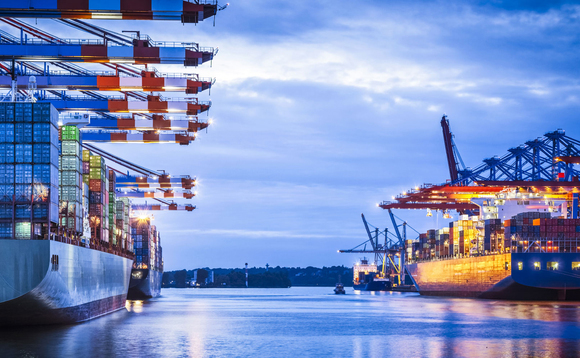
Beyond Beijing: Taiwan's trade dilemma

Taiwan’s future success as a foreign investment – and a private equity – destination largely hinges on the future of its free trade relationships. But the territory must first manage its ties with mainland China
Last week, Vincent Siew, Taiwan's former vice-president, travelled to Beijing for the 2014 Asia-Pacific Economic Cooperation (APEC) summit where he met with Chinese President Xi Jinping in an encounter both parties hoped would soothe relations. Beijing recently rebuked the territory for voicing support for pro-democracy protesters in Hong Kong, while anti-Beijing sentiment has it been simmering in Taipei as the city moves toward its tightly-fought mayoral elections.
Following the meeting, Beijing struck a conciliatory tone, with the state media quoting Xi as saying that the two parties should respect each other's "choice of development path and social system." This points to the complexity behind cross-strait relations and the difficulty Taiwan and China face in balancing their respective political with economic reality.
Taiwan's future prosperity depends on relations with China, not only because the mainland is its largest trading partner - Taiwan currently relies on China and Hong Kong for 39.6% of its exports and 18% of its imports - but also because of these same relations will likely to dictate its future trade agreements with other countries. Taiwan has so far largely been excluded from efforts on delivering greater regional economic integration due to China making objections on political grounds.
The one exception is APEC; China and Taiwan are both members, on the understanding that Taiwan joined as Chinese Taipei and its president agreed never to attend meetings.
"The China permission element is always going to be a wild card any time Taiwan wants to negotiate a bilateral multilateral trade agreement with somebody," says William Bryson, chairman of the American Chamber of Commerce in Taipei's (AmCham) PE committee. "China has issues with Taiwan entering into multilateral agreements that China is not part of, and even if they do. it will not necessarily support Taiwan membership."
Reaching out?
This is not only an issue for potential investors - including those in private equity who see free trade agreements (FTAs) as a driver for liberalizing foreign investment laws - but also for Taiwan's broader economic development. Cross-border agreements will inevitably rely on cross-strait relations, but nurturing the latter can be complex.
Despite having sixth largest GDP in the region ($474 billion, according to 2012 figures), Taiwan has seen very little PE deal flow with just $134 million transacted across 31 deals last year and $309 million across 14 deals so far this year. By contrast, Singapore - which ranks behind Taiwan in terms of GDP - saw $3.2 billion across 97 deals and $3.6 billion across 65 deals, in 2013 and 2014 so far, respectively.
However, some industry participants have been encouraged by recent efforts to enter into agreements with a number of countries.
Taiwan has already signed the Economic Cooperation Framework Agreement (ECFA) with China; this happened in 2010 and it opened the way for Taiwan to sign FTAs with other countries. Treaties have since been concluded with New Zealand and Singapore. In both cases, Taiwan entered into these agreements not as a sovereign state, but as the "Separate Customs Territory of Taiwan, Penghu, Kinmen and Matsu" - which also forms the basis of its membership in the World Trade Organization (WTO).
More recently, President Ma Ying-jeou said in his New Year address that joining the Trans-Pacific Partnership (TPP) - currently being negotiated by a bloc of 12 nations - would be a goal for Taiwan. The group includes the likes of the US, Japan and Australia, but not China. Taiwan is also reported to have entered into preliminary FTA discussions with other countries, although these have since hit a roadblock.
Problems arose when the Cross-Strait Service Trade Agreement (CSSTA), a trade treaty signed by China and Taiwan in June last year under the umbrella of ECFA, was not ratified by the Taiwanese legislature. Ratification was prevented by protestors against the pact occupying the Legislative Yuan for 19 days.
"There are six countries that have either have signed an agreement with Taiwan or have been in negotiations - all have been put on hold, partly because these countries do not want to upset China," says C.Y. Huang, president of FCC Partners and founding chairman of the Taiwan M&A and Private Equity Council (MAPE). "So China is a bit like a big brother; if these countries can get Beijing's blessing they can go ahead."
What Taiwan's government must do now is reassure the public that strengthening trade ties China is the right course of action in order to push through the CSSTA and then hopefully restart the stalled FTA negotiations. For many Taiwan business leaders at least the case for CSSTA is strong. AmCham's 2014 business climate survey revealed that of 423 businesses polled, 69% agreed that the CSSTA is mutually beneficial for China and Taiwan.
However, convincing the broader public is a different matter, with many feeling that integration with China has already gone too far.
"Our politics and economy is somewhat segmented by pro-China and anti-China attitudes," says Sonia Sun, a partner with KPMG Law Firm. "So the government has been doing what it can to educate people on the importance of opening up."
FCC's Huang describes how those who are against greater integration through the CSSTA fear that the mainland has become a strong competitor to Taiwan's high-tech industry. However, he points out that Taiwan is left with few alternatives.
"People say we should not rely on China and focus on globalization, but globalization without China - when the other countries view China as their biggest trading partner - is simply not feasible," Huang says. "Talking about TPP without CSSTA is like talking about graduate school when we didn't even get a high school diploma."
Even if Taiwan is able to proceed with its ambitions of joining the TPP - without ratifying the CSSTA - the practical hurdles to entry are significant. AmCham's Bryson describes the TPP as representing the gold standard for trade concessions. Again, there is the issue of convincing the public, industry and the Taiwan legislature that making the necessary concessions will secure better access to some of the largest economies of the world.
"The first question is whether the executive can make those concessions, and do they have the political will to make the modifications to existing laws and regulations that would be required to qualify for membership to TPP," Bryson says. "The second question is how long would it take?"
Accentuate the positive
On the positive side, Taiwan has already made some moves in the right direction with the Financial Supervisory Commission (FSC) loosening controls on private equity by allowing domestic asset managers to raise funds for commodity-linked PE investments. Meanwhile, the same AmCham survey cited earlier shows that 65% of business leaders feel that Taiwan is capable of meeting the high standards required for TPP membership. But much still needs to be done to bring regulatory practices in line with international norms.
"Some of our industries are well prepared, but not all of them and that is why it has been hard for the government to speed up the process," says KPMG's Sun. "In particular, Taiwan needs to prepare its weak industries, such as agriculture, which are not that competitive. Because once you open up to free trade, you have to open up all industries."
Sun's sentiment is reflected by AmCham's Bryson who also highlights agriculture as a potential stumbling block. He questions whether Taiwan will be able to demonstrate it can comply with an agreement once it is adopted.
"Taiwan in general has done well with its WTO obligations, for example, but some in Congress have publicly pointed out Taiwan's failure to live up to the beef trade protocol, or expressed been frustration at the dispute over its imports of US pork, and that doesn't help," he says.
Despite the ongoing uncertainty over FTAs, and questions about Taiwan's future relations with China, many remain upbeat regarding the territory's competitiveness in the region.
"When we speak to our multinational clients - particularly those from Europe and Japan - they view Taiwan as a good partner," says Audry Ho, a partner at EY. " Many of our clients are now saying that their first priority is focus on places like Taiwan before mainland China where issues over corporate governance and financial reporting systems can make it challenging."
AmCham's Bryson adds that many Japanese companies have used Taiwan as a springboard to other markets within the region. This trend may gain momentum as the cost of doing business in Japan and China equalizes.
"China was clearly a place to invest in for a long time but the cost of doing business in China is going up and as they reach parity you begin look at other factors, so there is a push to look at Taiwan more,' says Bryson.
Latest News
Asian GPs slow implementation of ESG policies - survey
Asia-based private equity firms are assigning more dedicated resources to environment, social, and governance (ESG) programmes, but policy changes have slowed in the past 12 months, in part due to concerns raised internally and by LPs, according to a...
Singapore fintech start-up LXA gets $10m seed round
New Enterprise Associates (NEA) has led a USD 10m seed round for Singapore’s LXA, a financial technology start-up launched by a former Asia senior executive at The Blackstone Group.
India's InCred announces $60m round, claims unicorn status
Indian non-bank lender InCred Financial Services said it has received INR 5bn (USD 60m) at a valuation of at least USD 1bn from unnamed investors including “a global private equity fund.”
Insight leads $50m round for Australia's Roller
Insight Partners has led a USD 50m round for Australia’s Roller, a venue management software provider specializing in family fun parks.






